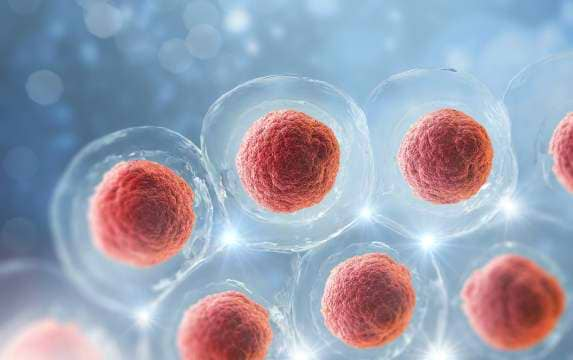350 million men worldwide suffer from erectile dysfunction, and conditions such as old age, hypertension, diabetes, cardiovascular disease and obesity are the most common causes of its development. However, in recent years studies have shown that men with gout are at higher risk for developing erectile dysfunction.
Gout is an inflammatory-metabolic disease characterized by uric-acid (urate) crystals deposits, usually in the joints and occasionally in other tissues.
Uric acid is a metabolite of purines – the building blocks of DNA in the body. However, various foods also contain high amounts of purines, such as meat, liver, fish, seafood, legumes and beer. The body breaks down purines into uric acid, which then gets into the blood circulation. As uric acid levels build up, the body excretes it, mainly through the urine and partly through the feces.
However, people with gout have high blood levels of uric acid, which occasionally form crystals in tissues, causing an acute focal inflammation (a gout attack), with symptoms such as intense pain, swelling, redness, warmth, stiffness, and reduced joint mobility. Gout usually affects the big toe joint, although sometimes, two or more joints become inflamed. Attacks may occur on a weekly, monthly or yearly basis, though the disease can also become chronic (gouty arthritis). Throughout the years, untreated gout can cause deposits of big urate crystals under the skin called tophi- resembling hard nodules. Tophi usually form in tissues and joints such as fingertips, elbows and ear tips, where they tend to cause deformities. Notably, there is one case report of a male gout patient who developed penile tophi.
What is The Prevalence of Gout?
Gout affects approximately 1 in 50 adults and men are more commonly affected than women. A first attack of gout typically develops in middle age though it might occur in younger people too.
What Causes Gout?
Usually, a fine balance exists between the amount of uric acid produced in the body and the amount excreted in the urine and feces. This keeps the blood levels of uric acid within the normal ranges. However, the kidneys of most gout patients do not excrete enough uric acid and therefore, blood level might rise (even if their kidneys work otherwise normally).
In some people, the build-up of uric acid may be due to other causes, such as:
- High alcohol and purine-rich foods
- taking medicines that raise blood uric acid levels, such as diuretics, aspirin and some chemotherapies.
- Health conditions that increase the risk of developing gout, such as:
-
- Obesity
- Hypertension
- Cardiovascular disease
- Diabetes
- High lipid levels in the blood
- Kidney disease or age-related decrease in kidney function, bone marrow disorders and conditions involving enzyme defects like G6PD
Gout and Erectile Dysfunction – What Does the Research Say?
Recent medical research has supported the association between men with gout and an increased risk of developing erectile dysfunction (ED). Interestingly, gout medications such as Allopurinol and Feburic might themselves increase the risk of ED, according to the results of a recent study (2022).
One of the early studies (2015) consisted of a survey of 201 men aged 18-89. 83 participants had gout, of whom 76% also had ED, and a significantly greater proportion of gout patients (26%) had severe ED (most of whom were older than 65). Furthermore, a significantly greater proportion of gout patients with tophi had ED vs. those without tophi. Based on the study’s results, the researchers stated that they strongly support the proposal to screen all men with gout for the presence of ED, which would lead to earlier medical attention and treatment of this distressing condition.
In a later study (2017), the researchers followed nearly 48,000 men for an average of 10 years, some with gout and others healthy. They discovered that for men with gout, the risk of developing ED post-diagnosis is 2% per year. Additionally, gout patients had a 31% increased risk of reporting ED compared to men without the condition – and this link persisted even after adjusting for factors that could contribute to ED (such as cardiovascular diseases, for example). Furthermore, it was found that erectile problems can manifest even before the painful joint issues surface, with a 46% increased risk of developing ED in the year preceding the first gout attack. Finally, the researchers indicated that the findings suggest that high uric acid blood levels combined with ED can point to underlying gout development before the first symptoms occur.
Similar results were reported in a large population study published in 2017.
Why does it Happen?
The relationship between gout and ED is still being studied, although one of the assumptions is that increased blood uric acid levels can affect endothelial function (i.e., the tissue that lines all blood vessels, including in the penis). Problems in endothelial function are a known cause of reduced penile blood flow, which can gradually lead to ED.
In addition, studies have shown that men with gout tend to consume large amounts of alcohol, be overweight, have diabetes and other health conditions such as hypertension, cardiovascular and chronic kidney disease as well as depression – all considered as risk factors for the development of ED. Furthermore, blood uric acid levels can surge up due to vitamin D deficiency and stress – all of which are associated with ED.
Recently (2021), a review of 9 studies found that the development of ED among gout patients involves not only high urate levels but also tissue oxidative stress (where the amount of free radicals that cause cell and tissue damage, exceeds the amount of anti-oxidants in the body), reduced Nitric Oxide production (the molecule responsible for blood vessels relaxation followed by erection), and low-grade inflammation.
In conclusion, although a significant association was found between gout and the development of ED, it is important to stay optimistic and remember that treatment adherence can improve the sexual health of gout patients. Likewise, by taking steps to promote sexual health, it would be possible to achieve better health-seeking behaviors, ultimately improving gout management. This is clearly reflected in the results of a recent (2022) large research review . Measures include keeping a healthy diet, exercising, and personalized drug therapy.
The Company hereby clarifies that the information contained on the website is for informational purposes only, and is not intended to be a substitute for professional medical and healthcare advice, and does not constitute medical advice or opinion. Always seek the advice of your physician or other qualified health provider with any medical condition or question you may have regarding a medical condition.





